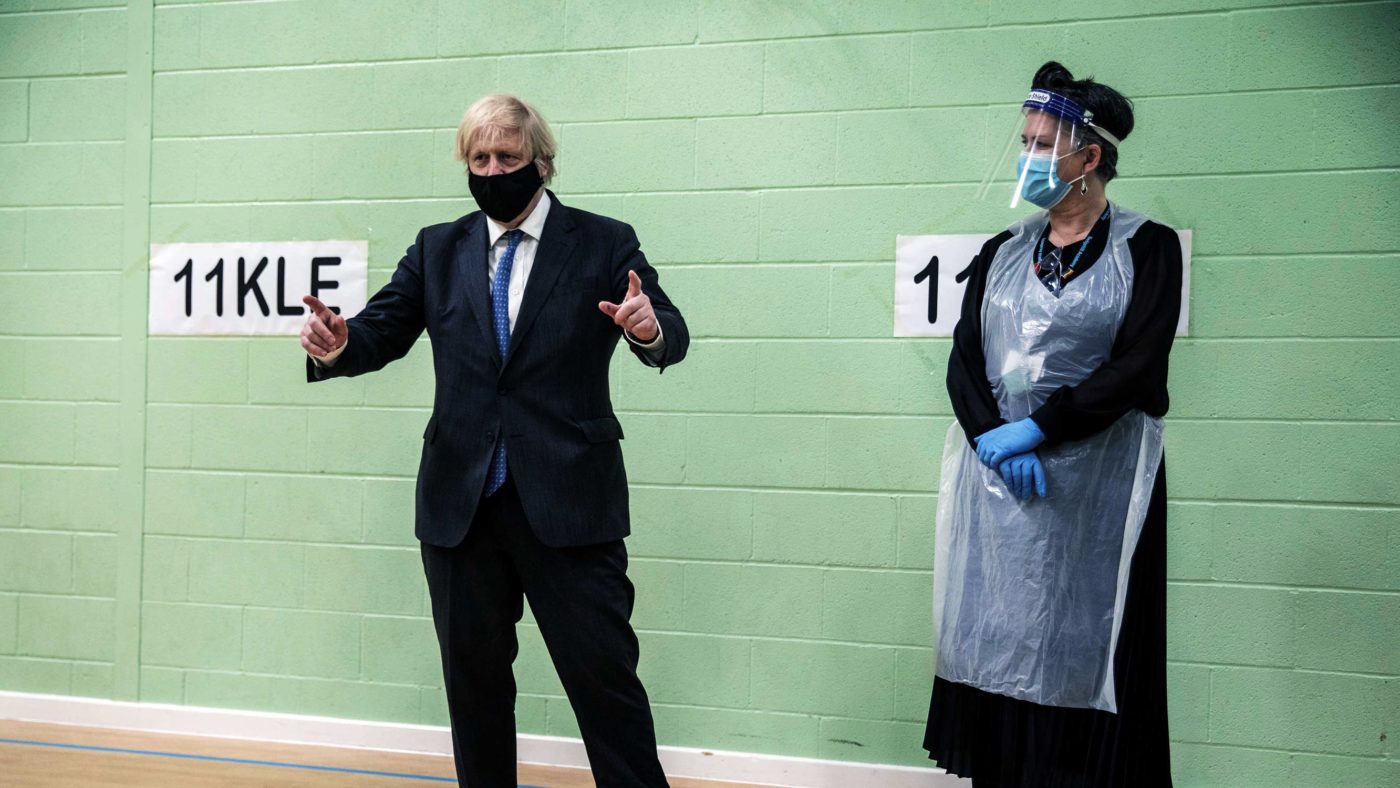“Data not dates” the Prime Minister declared, as he announced a series of dates on which the country will cautiously return to normal. The Government is planning a slow and staggered reopening to allow scientists to analyse how well vaccines work faced with a spreading virus and mutations. In short, the roadmap is primarily a bet on how well the vaccines work, and will probably pay off despite its flaws and inconsistencies.
This is especially true given how little updated guidance the Government has provided on how to mitigate transmission. Businesses, workplaces and schools are still being told to emphasise cleaning to combat an airborne disease rather than ventilation to become “Covid safe”. Opening up will cause the virus to spread: the difference from previous re-openings is the UK’s so far successful vaccination rollout.
Britain’s relatively swift rollout means the UK, along with the UAE and Israel, should be among the first to reap the benefits of vaccination. With more people inoculated, data should show a reduction both in transmission and hospitalisation as the vaccine slows the spread of the virus between inoculated people, and also reduces the probability of an unvaccinated person infecting a vaccinated one. If cases rise but are not accompanied by a rise in hospitalisation, vaccines are working and the reopening should continue as planned. It will take time for this effect to show up, which is one of the reasons why the four-week gaps between the stages have been proposed.
The Government has decided the first step on returning to normal is for children back to school. Making education a priority means step 1 of the plan is to send millions of people (children) back to their normal lives right away without enough additional effort to mitigate the transmission of the virus.
This is a risk, especially as masks (a norm in countries which have children in school at the moment) are not required for school children in classrooms, nor are vaccinations for children. Evidence shows that keeping schools closed is one of the most effective ways of shutting down transmission. Although vulnerable children have been vaccinated in Israel, there is no current plan to do this for schoolchildren in the UK, certainly not before clinical trials are completed showing the vaccine is safe in under-16s. Simply declaring a classroom bubble will not stop the virus spreading within it, especially if there is not significant emphasis on ventilation or keeping class sizes as small as possible. In countries with more experience with viral epidemics, such as Hong Kong (total deaths 197), schools are interestingly the first institutions to close and last to re-open.
It is time to fix our poor record of following best practice from around the world by noting what other countries in a similar position are planning on doing. Israel, with 50% of its population vaccinated, has only just started to ease it’s lockdown which has been in place since December 27. Restaurants, gyms and bars are going to reopen before some high school students return, which will also depend on local infection rates, the opposite of Britain’s plan. Ethical concerns over vaccination passports have not stopped Israel from rolling them out.
As I laid out here previously for CapX, there is a risk that mutations will be able to overcome pre-existing immunity granted by some of the vaccines. There is still time to accelerate the real reason we can contemplate easing lockdowns: more money for vaccine production. The Government proudly proclaims the £300m total it has spent since the pandemic started on vaccine manufacturing facilities, which is half the amount we spend on furlough every single day.
If during the long waits between the stages we find some vaccines aren’t as effective as hoped, we will need updated vaccines. The Government should accelerate the construction of the VMIC factory in Oxfordshire, and make sure it has secured production of a variety of Covid booster shots addressing the South African and other strains for the coming winter with options to accelerate production sooner if needed.
Unmitigated economic misery will feed into intense pressure for the PM to abandon his cautious timetable, and cash in on the short term popularity of accelerating opening up. It is therefore right the Government is going to continue with expensive furlough support, and should consider giving more economic support, rather than accelerating the reopening timetable. The financial implications of abandoning this cautious approach could massively outweigh the costs to the Treasury of a new mutations setting back the vaccination programme by a few months. Going by the PM’s past record of not wanting to be the deliverer or enforcer of bad news, this is perhaps as likely as the deadline for normalisation being extended beyond June 21.
The most sensible predictive strategy thus far has been rational pessimism. If the Government can stick with this cautious timetable and an accelerated vaccination programme, it really should be the last lockdown the UK experiences.
Click here to subscribe to our daily briefing – the best pieces from CapX and across the web.
CapX depends on the generosity of its readers. If you value what we do, please consider making a donation.


